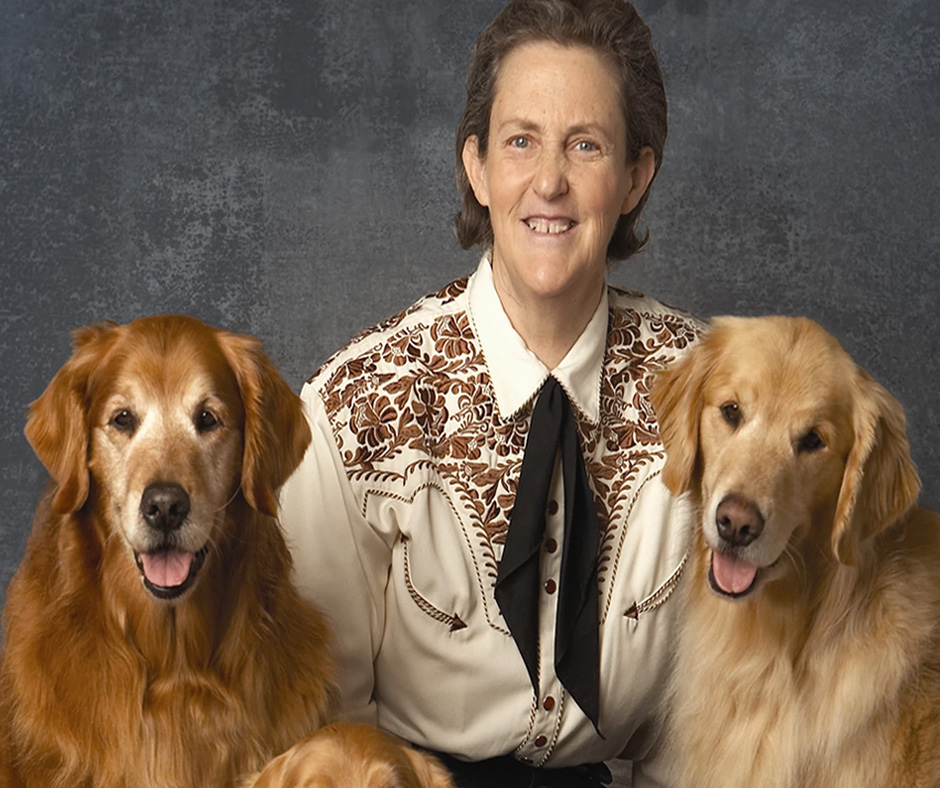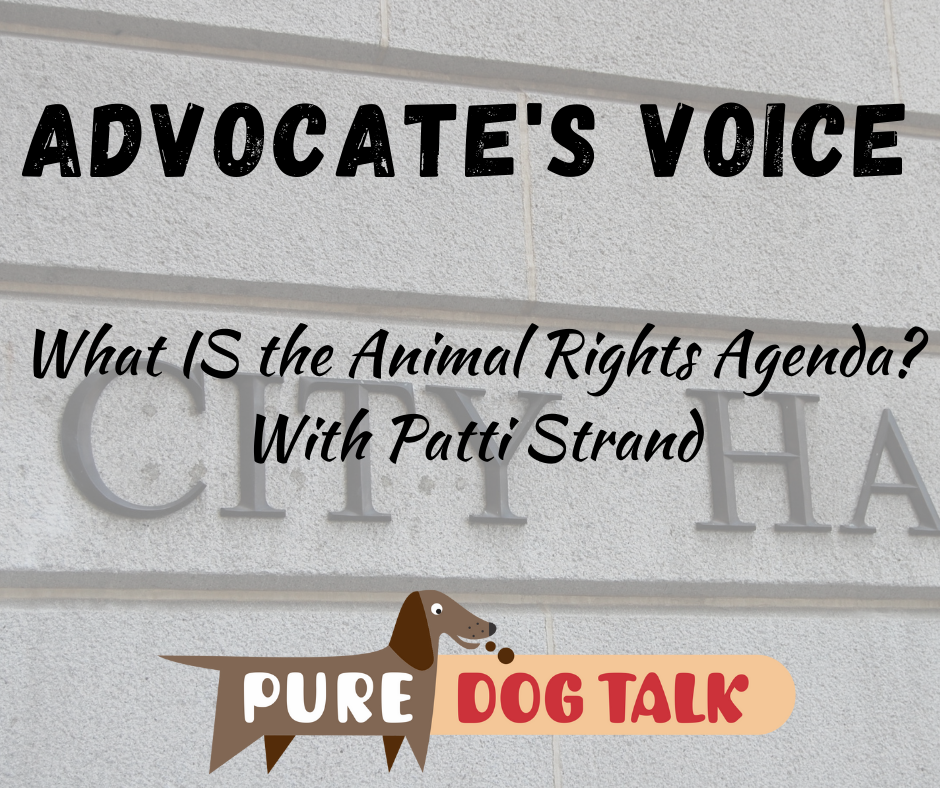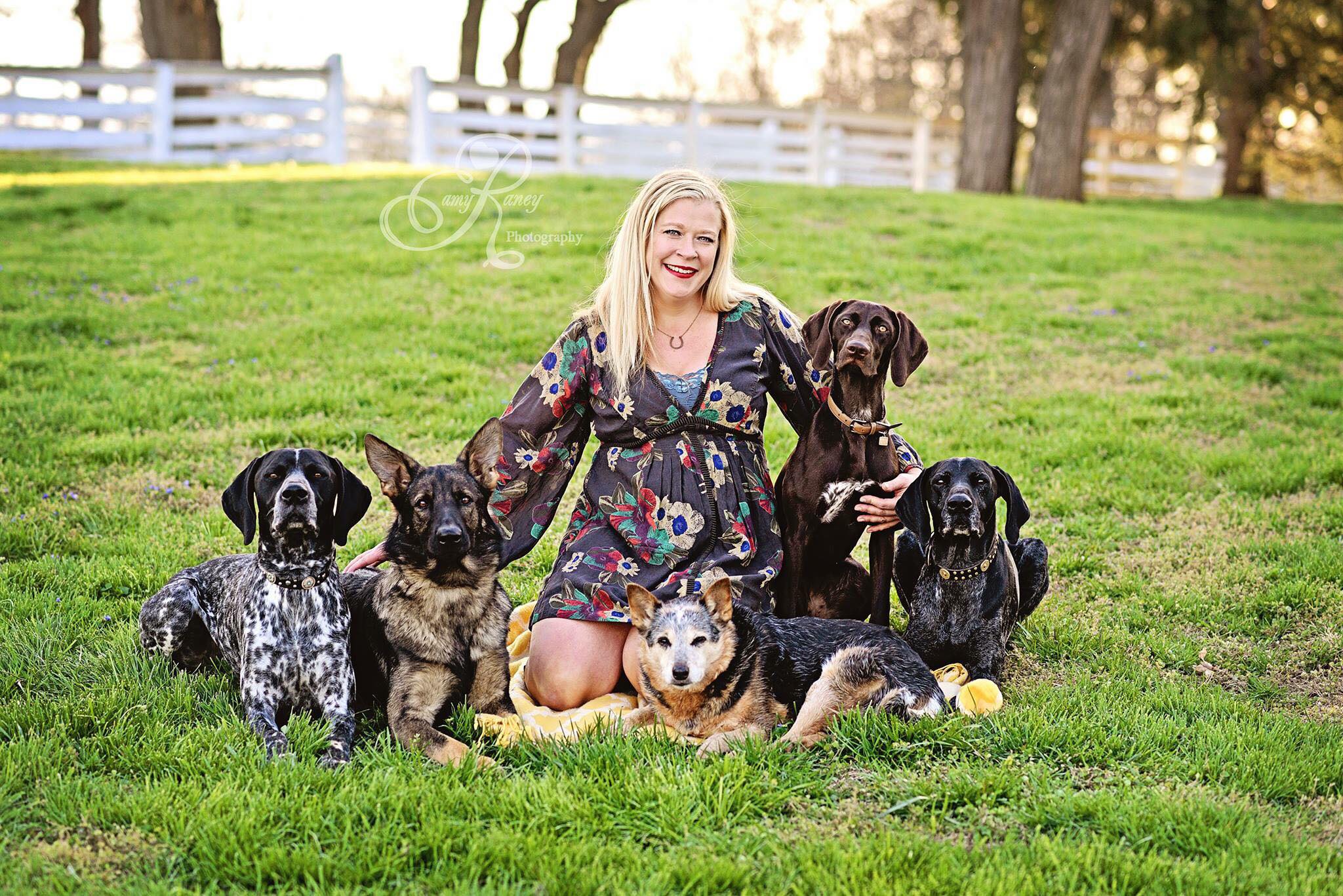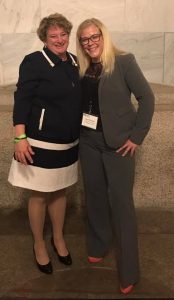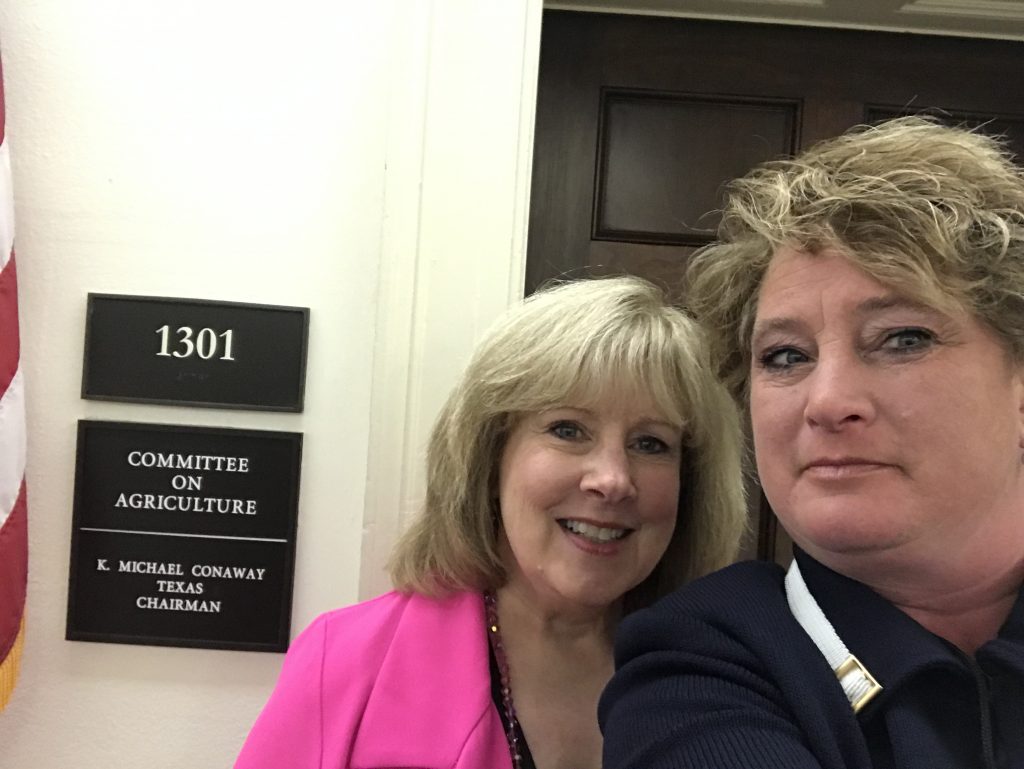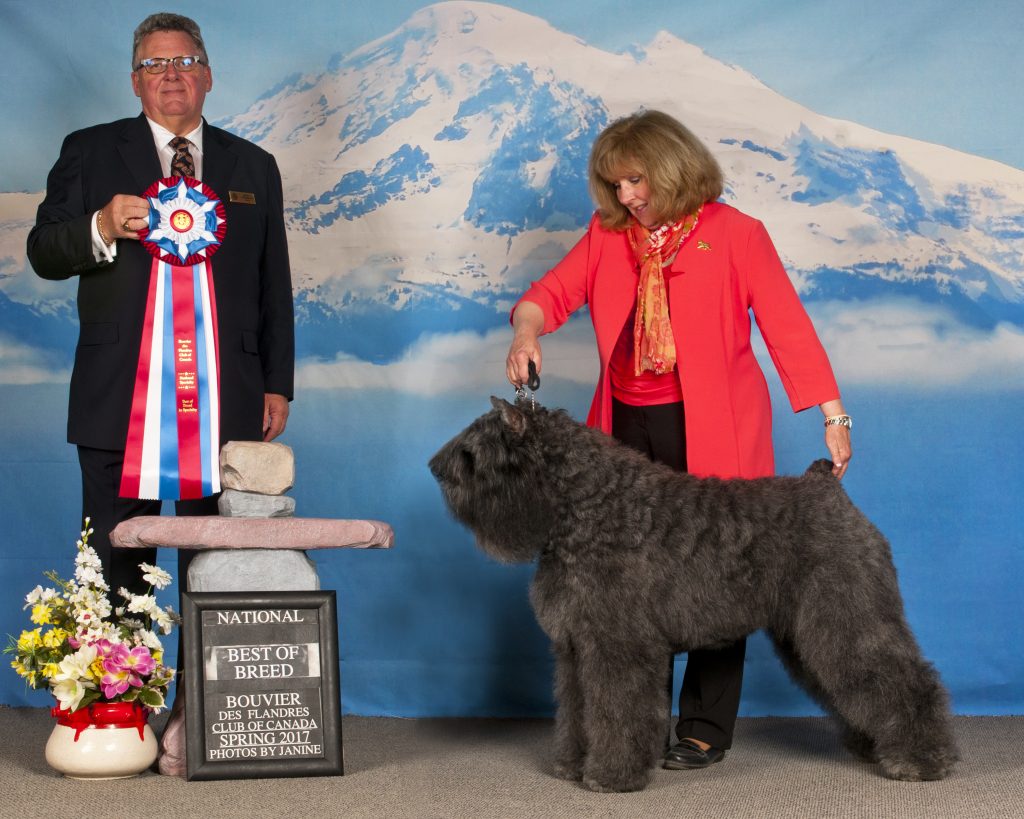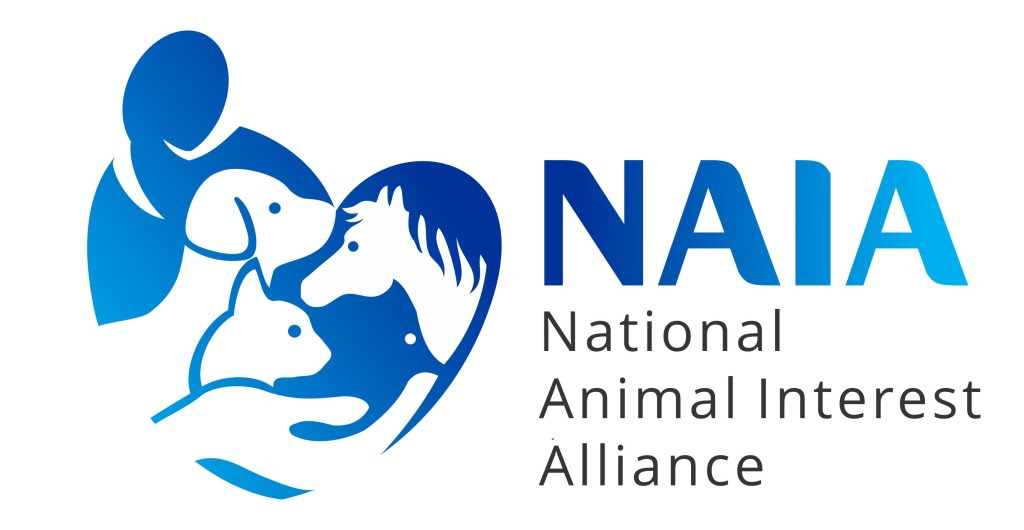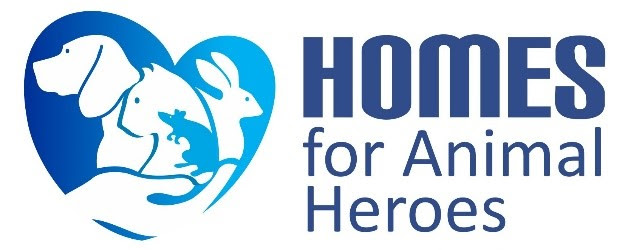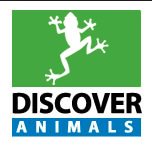578 — Temple Grandin to Headline NAIA Conference in Portland
Temple Grandin to headline NAIA Conference in Portland
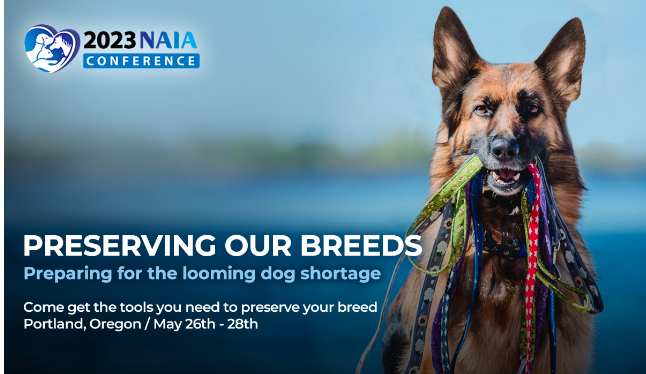 Patti Strand, founder of the National Animal Interest Alliance (NAIA) joins host Laura Reeves to discuss the lineup of speakers at the conference scheduled for May 26-28 in Portland, OR.
Patti Strand, founder of the National Animal Interest Alliance (NAIA) joins host Laura Reeves to discuss the lineup of speakers at the conference scheduled for May 26-28 in Portland, OR.
The annual NAIA conference kicks off under the banner “Preserving Our Breeds: Preparing for the looming dog shortage.” Strand shared her excitement about the keynote speaker, Temple Grandin, who has been actively involved in animal welfare for decades.
Strand said that Grandin’s most recent book “really speaks to me. It’s called ‘Visual Thinking, the hidden gifts of people who think in pictures, patterns and abstractions.’ And if you get into this book, she talks about different categories of work that people get into who have these gifts, and animal people are among them.”
Additional topics are focused on preserving our breeds, breeding healthy dogs and raising well-socialized puppies. Dr. Marty Greer, Carmen Battaglia and Dr. Claire Wiley will join the star-studded speakers panel.
“I could say the looming purebred dog shortage or the looming shortage of dogs that are deliberately bred rather than random bred or bred in countries that don’t have the same standards that we have,” Strand noted. “There always will be dogs available as long as there are street dogs in developing countries. We’re going to focus more on the deliberately bred dogs and talk about how we preserve them.
“The big part of the conference is dedicated to helping people breed better dogs, raise their dogs better. You know, the socialization pieces are all about that. The DNA piece, Marty coming in and talking about different aspects of reproduction.
“But again, in order to preserve their breed, a big part of that is breeding dogs. There are so many breeds today where you have a hundred or less dogs in the entire country. Not just 100 dogs that are intact, but just a hundred dogs of that particular breed. We need to encourage people to breed in a way that supports every aspect of animal welfare and so on, but breed dogs. It’s part of this preservation piece, you can’t preserve from if you don’t breed them.”
Remember to check out the NEW PDT Albums today!!
511 – What IS the Animal Rights Agenda? With Patti Strand
What IS the Animal Rights Agenda? With Patti Strand
Patti Strand, president of the National Animal Interest Alliance (NAIA), joins host Laura Reeves to discuss proposed ballot initiatives that have appeared, in identical form, in multiple states with a definite “animal rights” agendas attached.
The current initiative in Oregon and the previous one in Colorado aimed to criminalize injuring or killing animals, including killing for food, hunting, fishing and criminalizes most breeding practices.
Strand contends that it is unlikely the Oregon proposal will receive enough signatures to make it on the ballot, and the Colorado one did not, but that we should always “be aware.”
“It is possible that other groups will come together and urge this sort of thing to get put on the ballot,” Strand said. “But again, since they’re going after every use of animals, in my opinion, it’s unlikely to succeed anywhere. Not only because it’s way too broadly comprised but also because none of the national groups with money would put money into it.
“But this is all part of the animal rights agenda. The animal rights agenda is opposed to using animals for any purpose, regardless of how humane, how responsible or how much benefit might flow from using animals in this way to people and other animals. A great deal of medical research is done on animals, for animals. So clearly there’s an animal rights to agenda behind this.
“I will say that (since) it lacks funding from the big organized groups, either (the initiative sponsors) just didn’t understand the process and what they were going to be up against in the beginning or it’s a shot across the bow, to let us know ‘we’re still here and this is truly exactly what we want.’
“You do have to be aware that there are people out there, and that you’re associating with them every day, maybe they’re not even on the other side, but they definitely have been the recipients of a lot of misinformation and information that’s told from a very biased point of view. Propaganda is everywhere.
“One of my favorite articles is from a speech (by) Michael Crichton, the guy who wrote Jurassic Park, and it’s his speech to the Commonwealth and he opens it up by saying ‘I’ve been asked to speak to you today and to tell you what I think is the greatest threat facing mankind. And I have a fundamental answer. It is the ability to discern reality from fiction.’ So, we’re in a propaganda war.
“You know, one of the major goals of the animal rights movement is to turn us all into guardians instead of owners. You have to be very very careful that you don’t fall into that trap. When you say you’re your pet’s guardian or you are a pet parent or whatever, you are moving the goal post a little bit in their direction. Obviously, you don’t wanna sound cold and heartless, because that plays into the agenda, too. So, it’s just about being sensitive to the language itself and being very, very aware.
“The truth will set you free. I’m really big on truth telling and just being very honest and open about what you do, what it means, why it matters. You can’t speak in sound bites and win. If you try to come up with a sound bite that is going to be the perfect rejoinder to what they just said, you’re gonna lose.
“Those of us who spend our entire lives with dogs, put every extra dime we have into our dogs, who spend more at veterinarians than many, many people spend on their kids… I mean, we love our dogs deeply. We just don’t confuse them with people. We know that they are dogs and we take care of them.”
205 – NAIA’s Sara Chisnell on Legislative Trends
NAIA’s Sara Chisnell on Legislative Trends Nationwide
NAIA Legislative Director Sara Chisnell and PureDogTalk Host Laura Reeves at the NAIA Conference in Washington, DC October 2017.
National Animal Interest Alliance Legislative Director Sara Chisnell is seeing legislative trends develop across the country in several categories. More than just dogs, NAIA is leveraging a larger voice by bringing together groups across the animal kingdom.
Pet shop mandates
Pet shop sourcing mandates are cropping up in a number of states, Chisnell said. Laws were recently passed in California and Maryland which require pet shops to source the animals they sell only from shelters and rescues, cutting off supplies of commercially bred dogs.
“Puppy mill is a genius term coined by the animal rights groups,” Chisnell said. “What was portrayed in past is not true today. No matter how you feel about it, it is a much more regulated source of dogs than any shelter or rescue. There are no regulations whatsoever of shelters and rescues, while there are many layers of regulation on commercial breeders.”
For newer listeners, take a minute to check out PureDogTalk’s interview on this topic from last year.
“Set aside how folks feel about commercial breeders and pet shops,” Chisnell said, “when you cut off this supply, mandating only shelters/rescues supply to pet shops, it opens up those channels further. We have a huge problem with importation of unwanted dogs from other states and other countries. This is bringing in new diseases, Korean dog flu, zoonotic diseases, all kinds of crazy stuff. This is the main reason you should care. This will impact your own dogs.”
Chisnell also noted an increase in behavior issues in rescue animals as a direct result of the “no kill” movement in which rescuers are trying to save all dogs, whether they should be in a home or not.
“Some of the people working in shelters/rescues are very well intentioned,” Chisnell commented. “But many of them may not be properly equipped to evaluate the dogs. There are no repercussions for rescues. Purpose bred animals have consumer protection laws. These no longer come into play when it’s shelter or rescue animals.”
NAIA is working with the pet shop industry on preemptive laws, Chisnell noted. One particular eample, in Michigan, strengthens requirements for pet shops, while simultaneously preempting pet shop sourcing mandates.
Hot car bills
Feel good legislation, like providing immunity for individuals to break into a car to save an animal, have a multitude of unintended consequences that have not been thought through, according to Chisnell.
Animal Research Adoption Bills
These laws require research facilities to place animals in adoption, often through local animal shelters.
“These are programs that research facilities have had for years,” Chisnell noted. “When they are forced to work with local animal shelters, it takes away oversight from people who know the animals.”
For more information on the incredible work done within the research community working with animals, listen to Dr. Cindy Buckmaster’s PureDogTalk interview.
On the plus side…
- NAIA worked with the Illinois Purebred Dog Federation to pass a law requiring more oversight and reporting from shelter and rescues.
- A proposal in New Mexico to charge a pet food fee to a fund state spay/neuter campaign was defeated through NAIA’s efforts.
- NAIA drafted law to require shelters in Virginia to disclose behavior history, particularly known bite history, prior to adoption of a dog.
- In New Hampshire, grass roots advocacy supported by NAIA stopped anti-breeder legislation before it was passed.
For more information about the legislative work NAIA does, click the legislative action center and sign up for alerts at http://www.naiatrust.org/
Remember to stick around for Allison Foley’s Tip of the Week from the Leading Edge Dog Show Academy on safely loading vehicles for travel with our dogs.
176 — NAIA’s Patti Strand on Pet Expo for Public Outreach
Pet Expo Provides Public Outreach Opportunity
Patti Strand, President of the National Animal Interest Alliance, has spent nearly 30 years attending America’s Family Pet Expo in Orange County, Calif. Instead of insisting that JQ Public meet purebred dogs only at dog shows, where most of us are too busy to actually interact with visitors, Strand says Pet Expo and other public venues are a great way to introduce our responsibly bred purebred dogs to folks in the community.
Reach New Club Members
Strand, along with her husband Rod, have been active in growing the participation of breed clubs at the Orange County event, which last year boasted 47,000 visitors. Representatives from more than 90 breeds had the opportunity to interact with those families, with long lines at most of the booths, Strand said.
“… one of the things I’ve seen that’s pretty cool on the part of the breed clubs is how they’ve evolved over time, to now they have begun to create literature,” Strand said. “Maybe they had a brochure or a flyer, to begin with, but now they have a lot more materials that they’re passing out and I think they’re finding it not only is a great place to educate or inform the public about their breeds but also they’re recruiting fanciers, people who love the breed. People who live in the area and had a Dalmatian or had a bulldog but didn’t know there was a club.
“… what we have found at the pet expos are the number of people who have our breed, who love our breed and really, really want to connect with other people who have the breed. So, if some of the memberships are a little smaller than the clubs would like them to be, this is really a great place to meet other fanciers of your breed that you never knew existed,” Strand noted.
Home for Animal Heroes, an organization NAIA supports that provides resources to foster and rehome retired medical research dogs, will offer an adoption opportunity at the Orange County event. The Expo is April 27-29, 2018 at the Orange County Fair & Event Center.
Homes for Animal Heroes also is sponsoring a “virtual 5K run” to raise money for their goal to expand their fostering and adoption network to more states.
Strand noted that public events like the Expo allow responsible preservation breeders to take back the conversation about animal welfare in the public dialogue.
“…when you really think about the dog fancy as a whole,” Strand noted, “there are no other people in the world that give as much of their time, their love, their money, their energy, their intelligence to trying to make sure that dogs have good lives, that they’re able to live longer, that they are socialized well enough to live in the world comfortably, … you know all the things that go in to raising dogs.”
Patti Strand is a long-time Dalmation breeder who has been blazing the path of animal welfare and providing a voice for the rights of dog breeders for 25 years.
And don’t forget! Listen to Allison Foley’s Leading Edge Dog Show Academy Tip of the Week on how to not lose your equipment at the dog show!
126 – Where’s the Beef and Why It’s With Our Dogs|Patte Klecan and Caren Cowan
Where’s the Beef?
Turns out it’s right next to the purebred dogs
Save our Sport is a popular rallying cry these days. Everybody has an idea or a suggestion. This is a story about one dog fancier’s journey and how she worked with a New Mexico cattle rancher to help effect positive change in animal welfare regulations. With practical, hands on suggestions about how you, too, can make a difference.
Patte Klecan’s Story
About 15 years ago anti-dog legislation arrived in New Mexico. Patte Klecan turned for help to a customer from her grooming shop, Caren Cowan, Executive Director of the New Mexico Cattle Growers Association, who she knew was actively involved in legislation for the state’s cattle industry.
Since then, the two have worked together on numerous pieces of legislation at the state, local and even national level, bringing the combined voices of purebred dogs and agriculture to speak out on animal welfare issues.
Beef, Dogs and Agriculture: Stronger Together
Their experienced input offers listeners a number of excellent suggestions.
- Understand that legislation is local. No one is going to do it for you. NAIA and AKC Government Relations have a treasure trove of helpful material, but nothing beats live and local when it comes to fighting anti-dog, anti-breeder, animal extremist’s legislation. YOUR voice counts.
- Get to know your legislators, establish yourself as an expert in the field, help them when they have questions, build a relationship, then you can ask them to sponsor/carry a bill for you.
- WE are the subject matter experts, WE have the hands on knowledge to inform legislators on any animal welfare topics.
- NAIA is the mainstream, reasonable, fact based legislative voice on all animal related issues. AKC Government Relations focuses on purebred dogs. The two organizations work on parallel tracks.
- Present a united front with breeders, farmers and ranchers, amongst others. Together our voices are numerically far more powerful than the well-funded machine that is Animal Rights Extremism.
- Legislators NEED us. They need someone they trust, who will always give them the truth.
- Don’t wait until there this is a crisis. Create a relationship with legislators first. Invite them to your kennel club meeting or dog show. Invite the city mayor or local legislator to come and award the BIS trophy, make sure the local tv and newspaper are notified. Legislators love media and positive coverage in the community. If we reach out to them they become aware. Otherwise they don’t know we exist.
It’s fun!” Klecan says. “I was scared to death! But you get into it. It’s really exciting to interact with legislators.”
We need to counter with our voices, our passion, our truths,” Klecan adds. “Stand up for yourself, for your animals, for your food. Everyone has time to do something. It takes five minutes to make a phone call to a legislator. They want numbers, that’s what matters, from THEIR constituents.”
An example of the “unintended consequences” of “feel good” legislation:
https://patch.com/rhode-island/eastgreenwich/ri-has-problem-puppy-trade-state-vet
Puppy Sales, Pet Shops
Puppy sales have moved from pet shops to the Internet, according to the state veterinarian who says it’s now hard to regulate the sellers.
Humane societies and pet lovers are not winning the war to end the cruel practices at puppy mills, he said.
Although many pet lovers believe the problems with puppy mills have been largely solved by closing the pet stores that sold puppies, in reality, the problem’s become worse, he said. At least the brick and mortar stores could be inspected and regulated. They had to be licensed. They had to keep medical records, and their transporters could be inspected. It was not a perfect system admittedly, he said. But now it’s all being done underground behind a virtual curtain. It’s worse for the animals that are being put through suffering. And it’s worse for the people who buy a puppy only to lose it because it never had any shots or proper care, Dr. Marshall says.”
Example of How to To Work With Legislators
Here is an example of a response that can be provided to local jurisdictions/legislators in regards to proposed spay/neuter regulations:
Mandatory Spay/Neuter Laws a Misguided Approach to Stabilizing Pet Populations
By: Patti Strand Date: 02/22/2010 Category: | Uncategorized |
Background
Many states and localities have considered laws mandating that pets be spayed or neutered. They typically stop short of effectively eliminating all dog and cat breeding by instituting a process whereby breeders must obtain licenses to avoid the forced sterilization of their pets.
Our Position
NAIA opposes mandatory sterilization and other coercive “spay or pay” licensing schemes because these approaches have little effect on reducing shelter intake and euthanasia rates while producing serious unintended consequences. The people whose pets are producing unwanted offspring are seldom people who license their pets in the first place, so increasing license fees will not affect them. Typically, the pet owners whose dogs and cats produce unwanted litters benefit from low cost spay/neuter services and educational resources. At the same time, raising license fees and increasing restrictions on the most responsible pet owners and breeders in society reduces the number of well-bred, quality dogs and cats available to the public and assures that poorer sources will emerge to fill the demand. At this time, numerous countries around the world are beginning to breed dogs for the American marketplace to meet the growing demand. One of the reasons for this trend is over-regulation of American breeders.
Reasons to Oppose Mandatory Pet Sterilization:
Health risks
The choice to perform surgery on one’s pet should remain an educated decision between the pet owner and their veterinarian, not dictated by an arbitrary standard assigned by the state. The proper age for this procedure is becoming a matter of serious debate in the animal care community, as medical and behavioral problems (particularly when performed at an early age) are being discovered and reported.
Reading list:
 A Healthier Respect for Ovaries
A Healthier Respect for Ovaries
 AVMA: Mandatory spay/neuter a bad idea
AVMA: Mandatory spay/neuter a bad idea
 Golden Retriever Study Suggests Neutering Affects Dog Health
Golden Retriever Study Suggests Neutering Affects Dog Health
 Society for Theriogenology Position on Mandatory Spay-Neuter in the Canine and Feline
Society for Theriogenology Position on Mandatory Spay-Neuter in the Canine and Feline
 Lifetime ovary exposure and exceptional longevity in dogs
Lifetime ovary exposure and exceptional longevity in dogs
 Determining the Best Age at which to Spay or Neuter: An Evidence -Based Analysis
Determining the Best Age at which to Spay or Neuter: An Evidence -Based Analysis
 Australian Veterinary Association position on mandatory spay/neuter
Australian Veterinary Association position on mandatory spay/neuter
 The Long Term Effects of Spay/Neuter in Dogs
The Long Term Effects of Spay/Neuter in Dogs
Costly
This proposal will not lower costs to animal control agencies. Statistics show that costs do not go down when the number of sheltered animals decreases. In fact, enforcing this law would actually put more administrative burden on local agencies, the costs of which would exceed the amount collected in fees and fines. Spay/neuter advocates commonly cite success stories where great savings were achieved by passing spay/neuter legislation. Santa Cruz County is one such place, but the growth of the county animal services budget over the time in question tells a different story.
Discourages responsible breeding
There is an important role for breeders in pet supply and demand. This approach will create a deterrent for breeders to obtain licenses, possibly leading to widespread non-compliance and a shortage of dogs bred to assist the public such as guide, therapy and rescue dogs. Furthermore, it would diminish the best source of healthy, well-adjusted, behaviorally sound cats and dogs available to consumers.
Economic ramifications
Animal sports and competitions bring in valuable tourism dollars.
Shelter dynamics are misunderstood
The reality is that today, a large number of sheltered animals are either surrendered by their owners for euthanasia because they are old and sick, seriously injured, or dangerously aggressive. Many of the dogs euthanized are unidentified, unclaimed strays or ones that are too old, sick, injured or aggressive to be placed in new homes; many of the cats euthanized are feral animals that were never owned but were trapped and impounded because they have become nuisances. Furthermore, some lump dogs and cats together, and many lump feral and recently owned cats together. The lack of consistent data encourages some to call for quick fix solutions, but the reality is that the existing problems will not be resolved by mandatory sterilization.
Note: because of the difficulty in obtaining shelter records and data, we created the NAIA Shelter Project the most accurate and comprehensive listing of shelter data in the United States. Visit the NAIA Shelter Project today!
Constitutional considerations
Since pet owners would be denied control over their property without any semblance of an overriding state interest in the outcome, this interference of a pet owner’s right to make decisions regarding their pet violates the Due Process Clause of the Fourteenth Amendment of the US Constitution.
Shown to be Ineffective
This law has been tried in Santa Cruz, CA and King County, WA with disappointing results.
A Viable Solution
Extensive shelter data shows that public education, low-cost resources for the poor and reasonable licensing programs are working. The data also demonstrates that spay and neuter campaigns have been so successful that some animal shelters presently do not have enough adoptable animals to meet the high demand for pets. Some shelters have started locating dogs in other states to satisfy this demand. We should examine solutions from the standpoint of increasing pet retention and improving pet distribution, rather than the assumption of pet overpopulation in the US.
For more information on this issue, visit out Legal and Legislative Resources page.
http://www.naiaonline.org/issues-programs/naia-position-statements/
http://www.naiaonline.org/issues-programs/naia-campaigns/
Patte Klecan – Biography
NAIA board member Patte Klecan has had a lifelong interest in animals. Today she is involved in canine legislation and the movement to protect pet owners rights. Patte is a dog fancier who raises and shows Bouvier des Flandres and owns a professional grooming business.
Caren Cowan – Biography
NAIA board member Caren Cowan has served as executive director of the New Mexico Cattle Growers’ Association (NMCGA) for more than 19 years. For the seven years previous to that she served in the same position for the New Mexico Wool Growers, Inc. In 2009 Cowan purchased the New Mexico Stockman Magazine and the Livestock Market Digest which she currently publishes.
Cowan’s work for New Mexico’s livestock industry has included representation at the New Mexico Legislature and on Capitol Hill on issues ranging from federal land use to animal health and trade. Additionally, she works directly with state and federal regulatory agencies addressing the needs of agriculture and the livestock industry. She also manages the day-to-day operations of a statewide trade organization including communication, membership, and financial issues.
Cowan was reared on a commercial beef ranch in Cochise County, Arizona, some of which she and her sister still own. She is a graduate of the University of Arizona with a B.S. in agricultural communications.
She writes a monthly column, “To The Point,” in the New Mexico Stockman Magazine. Her book, No Home On The Range — Diary of an Executive Cowgirl was published in 2003.
104 – NAIA: Patti Strand Asks “What is YOUR Elevator Speech” for Purebred Dogs
NAIA President Patti Strand Wants to Know… What’s YOUR Elevator Speech for Purebred Dogs?
NAIA President Patti Strand shares elevator speech strategies for talking with the public and gives PureDogTalk listeners the inside track on breaking news about upcoming legislation.
An elevator speech is a very short statement, less than 30 seconds long, that allows us to talk in a positive way with folks who oppose purebred dogs, dog breeders, crop and dock, or pets in general.
“Dog breeders are the public relations face of the sport of dogs,” Patti Strand reminds us. “You want to have something ready to say. Every chance you get, is one you should be prepared to take advantage of.”
“Someone saying something negative can be the opening,” Patti adds, “but the key is to get the conversation started.”
“And remember,” she notes, “body language is important. Often it IS the message.”
How much do you love your dogs?
“I think the most important thing for people to understand is how much you love dogs. Everyone in our community is devoted to their dogs. It’s easy to prove — whether it is time devoted to your dogs, the financial outlay, volunteer time dedicated to a local shelter, we can all easily demonstrate our devotion to our dogs,” Patti said.
What are your real concerns?
“Once you establish that level of dedication, then convey your concerns. Concerns about ongoing breed specific legislation, importation of street dogs from Asia and the Middle East that bring dangerous diseases to our pets. You need to personalize the message in a positive way and establish that as owners, breeders and exhibitors of purebred dogs, we are trusted subject matter experts.”
Urge other owners to learn more
Patti says the final step is to encourage the person to learn more.
“What’s truly unique about our community is that most everyone is a volunteer in our sport. Our price tag is our commitment to our dogs. No matter what topics you list in your little speech, it’s all going to come back to love for the dogs.”
Here’s your “elevator speech” call to action listeners!
Try setting up a role playing game at your next kennel club meeting in which all of the members practice their elevator speeches.
AKC Government Relations has bullet points available on how to answer animal rights questions and current legislation opinions.
Breaking News: NAIA Animal Nation, Washington D.C.
October 2-4, 2017 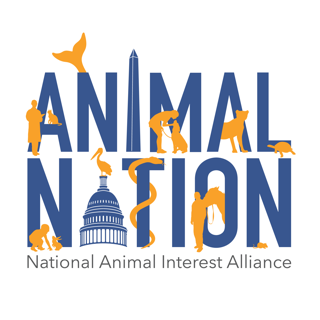
Introduction of legislation sponsored by NAIA to more carefully monitor importation of rescue dogs. “There is currently no one agency that can take charge of this area. CDC, USDA, Veterinary Services. The laws on the books are outdated and were created for people traveling with their own dogs.”
AKC will be introducing legislation regarding breeding and development of dogs for work with Homeland Security. The topic will be addressed at the NAIA conference in Washington DC in October.
For more information on today’s podcast topics, follow these links.
http://www.naiaonline.org/uploads/Main_Upload_Directory/NAIA2017ConfReg.pdf
More from NAIA
Homes for Animal Heroes
http://animalheroes.naiaonline.org
“Homes for Animal Heroes (HAH) is a national program dedicated to rehoming retired research animals, mainly dogs, and sharing the facts about the critical role animals in research play in curing disease. HAH is building a network of dog experts that can effectively work with research institutions to rehome retired research dogs in every state across the country, one location at a time. Our goal is to permanently rehome these animal heroes into loving homes through a comprehensive foster-based program.”
Discover Animals
http://www.discoveranimals.org
“Instead of hands-on husbandry experience that our rural ancestors took for granted, most people today learn what they know about all animals from their pets, from the classroom, from TV, from popular culture, the Internet, zoos, circuses, and the various animal shows where aspects of husbandry are still understood and practiced.
It is our hope that this website will add to greater public awareness of animal issues and husbandry, help fill the void created by our isolation from so many of the animals we depend on and help correct the misinformation that too often leads to misguided and damaging personal as well as policy decisions in our culture.
Resource for interesting and factual information on all animals
Our mission is to be a key resource for relaying interesting and factual information about animals. It’s a colossal mission, and not one that can be accomplished overnight, but we are committed to providing a truly valuable resource for animal enthusiasts and professionals everywhere. Please stick around and watch us grow. If you like what you see, join in by contributing new information, photos, videos, scientific studies and articles.
This website is a project of the National Animal Interest Alliance (NAIA) whose board members and their unique expertise working with animals is listed here. Please stay tuned and help us as we develop this resource. We have developed numerous ways for you to contribute your special knowledge. Write us at support@naiaonline.org for more information or visit the Participate section of the website.
Read More:
http://www.naiaonline.org/naia-library/articles/humane-or-insane/#sthash.scgQkJlw.dpbs
One of the early observations on the retail rescue phenomena.
http://www.naiaonline.org/naia-library/white-papers/
Comprehensive list of NAIA articles on a variety of topics
Guest editorial from Patti Strand regarding the need for more regulations of shelters and rescues.

